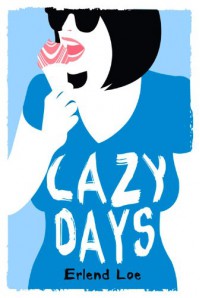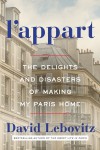19
Followers
19
Following
M Sarki
Besides being a poet with four collections published, M Sarki is a painter, film maker, and photographer. He likes fine coffee and long walks.
M Sarki has written, directed, and produced six short films titled Gnoman's Bois de Rose, Biscuits and Striola , The Tools of Migrant Hunters, My Father's Kitchen, GL, and Cropped Out 2010. More details to follow. Also the author of the feature film screenplay, Alphonso Bow.
Currently reading
L'Appart: The Delights and Disasters of Making My Paris Home
We Learn Nothing: Essays
Elmet: LONGLISTED FOR THE MAN BOOKER PRIZE 2017
Limbo, and Other Places I Have Lived: Short Stories
The Double Life of Liliane
At Home with the Armadillo
American Witness: The Art and Life of Robert Frank
Autumn
Inside Out: A Personal History of Pink Floyd (Reading Edition)
American Witness: The Art and Life of Robert Frank
Lazy Days
 http://msarki.tumblr.com/post/129350768253/lazy-days-by-erlend-loe
http://msarki.tumblr.com/post/129350768253/lazy-days-by-erlend-loeThe title of this superb little tale should have remained and contained both the words Mixing Part. The title Lazy Days is unjust, inappropriate, and mediocre for a book this good and honest to the core. From the opening pages one can easily discern what I mean by this as the English translation for the German name of the town this family chooses to spend their holiday in is nothing less than tantalizing as it contains a humorously bad translation. Mixing Part Churches. It definitely set the tone for where the author meant to take me.
Having already raised a family of my own certainly helped me to understand and appreciate the humor and seriousness of this brilliant work. All relationships are absurd, and the reasons we remain in them are often questionable. Some call it love, others an arrangement. I have always termed all marriage alliances as deals no matter how much love is involved. And often, throughout a long life, the deal changes. New negotiations must incur and new agreements for any hope for the continued “love affair” to thrive. Often in these processes, relationships become devoid of any passion, and often love exits to far-off reaches, and is nowhere in the vicinity of where it was supposed to endure the coming tribulations. In other words, sometimes our lives do become theater, and this is what this novel details.
I cannot imagine this book being enjoyed, or being of much use to anyone not already subjected to a long and accomplished relationship. If deceit and cowardly behavior signifies what a marriage can be, then this bit of work by Erlend Loe would be too much for those of us to bear. Plus it is not conventional in its style. It is basically all dialogue and the reader must discern at all times who is actually doing the talking. There is little help given the reader except for the supreme craft of Loe always present on the page. The questions and conversation he employs keep the action steadily moving. Everything on the page is connected, and skillfully executed. I had absolutely no trouble in following the dialogue. It was as if my wife and I were the ones who actually wrote this book. It was if my own kids were present on the page. I like to think our family might too have been, at times, interesting, and this book was actually one I should have written myself. But alas, I did not. It was Erlend Loe who performed this miracle. It appears Loe has additionally much more to offer his reading public, as he has never repeated anything in the three books translated into English that I have read thus far. He obviously borrows from his life and his varied interests in it. It seems every question regarding his life he attempts to face honestly on the page. And we are rewarded consistently by his efforts. The sharp and biting dialogue prepares us for the route his wandering plot portrays. The results are magnificent in their clever and exquisite development.
Having been confused from time to time over which direction my own life should take, and wondering if I ever could be the person I often imagined myself to be, it is refreshing to read of the same consternation the narrator Telemann has for his own life. By reviewing his own sexual fantasies happening outside his marriage bed it helps the reader to understand why Telemann’s wife Nina might actually stray herself from the so-called sanctity of marriage. After his wife’s Nina’s gift of a popular cookbook to him, Telemann obsesses daily over the author Nigella Lawson and her buxom body. Telemann extends his obsession to hating the art collector Charles Saatchi who she was presently married to. The concept that Life is always theater is not difficult to accept when confronted with it so aggressively as Loe is wont to do. By also involving the couple’s later attempt at viewing together the great seven and a half hour Hungarian film Sátántangó by Béla Tarr the absurdness grows amidst the reality of their creative adulteries. Having been myself subjected to this film twice already, the haunting soundtrack composed by Mihály Víg, by default, as well saturates the Loe narrative for me. Sátántangó was based on one of the great novels written by László Krasznahorkai, who is a regular collaborator in most Béla Tarr directed films.
Contrary to the mostly lukewarm reviews of Lazy Days, I found this title to be fresh and invigorating, and one of the best reads of the year so far for me.







